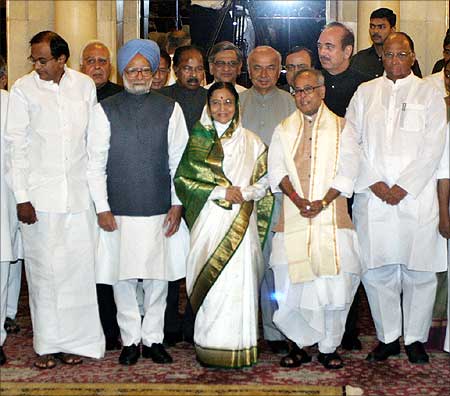
The presentation and passing of the Union Budget will be the first important task undertaken by the new-minted UPA government.
Within days of assuming charge at the finance ministry, Pranab Mukherjee made it clear the government was not keen on going in for a second vote-on-account. In the run-up to the national election earlier this year, the first vote-on-account had taken place on February 16, preceded by the interim Budget.
This allowed the country's financial business to be transacted until the next government was in place.
The Indian Constitution says all revenues received by the Union government and loans raised by it are to be put into the Consolidated Fund of India. When the government needs to withdraw money from the Consolidated Fund of India to cover its expenditure, it has to seek first approval from Parliament.
A special provision is, therefore, made for a vote-on-account by which the government obtains the vote of Parliament for a sum sufficient to incur expenditure on various items for a part of the year.
The vote-on-account the previous government obtained expires at midnight, July 31. Without passage of the Budget before that, the government will not be able to draw money from the Consolidated Fund of India for government expenditure, unless it passes a second vote-on-account.
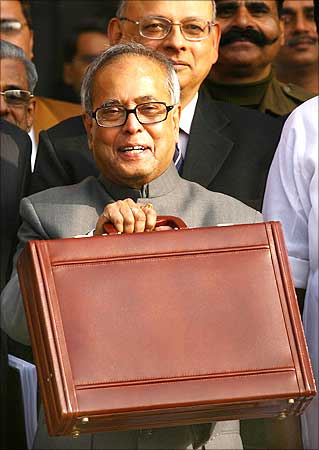
The finance ministry is racing to prevent a situation in which a second vote-on-account would be required. This is why it has announced it will present its Budget on July 6 (the Railway Budget will be presented on July 3), and aim to get it passed in Parliament by July 31.
Preparations for the new government's first budget are in full swing. As soon as he took charge of the finance ministry, Mukherjee began Budget-related consultations with top officials from his department.
"We have identified issues and areas of concern that need to be addressed in this Budget and will work closely with Manmohan Singh in presenting the first budget," he said in an interview to private news channel CNBC-TV18.
The finance ministry in North Block is already off limits to visitors in keeping with the customary veil of secrecy surrounding the exercise.
Mukherjee had earlier said that this year's budget will spell out policies and priorities of the new UPA government.
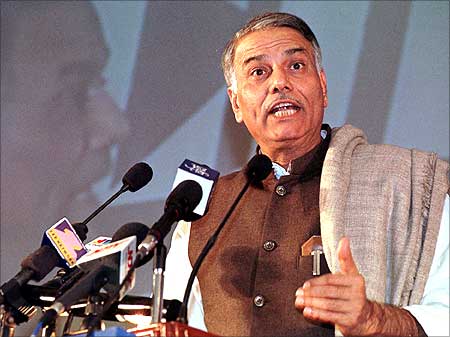
Until the year 2000, the Budget was announced at 5 pm on the last working day of the month of February. This practice was inherited from the Colonial Era, when the British Parliament would announce its budget at noon after which the budget would be announced in India.
It was Yashwant Sinha, finance minister in the government headed by Atal Bihari Vajpayee, who changed the ritual by announcing the 2001 Union Budget at 11 am.
This year, due to the elections, the Railway Budget will be presented on July 3 and the General Budget will be presented on July 6.
The Budget, essentially, is the country's 'annual financial statement.' It takes into account a period of one financial year. India's financial year begins on April 1. The statement embodies the estimated receipts and expenditure of the Government of India for the financial year.
The Budget making process is shrouded in secrecy. A few days before the Budget is presented, the focus shits to those officials who are responsible for printing it work from the basement of North Block (where the press that prints the Budget is located). They will leave the basement only seven days later, after the Budget speech is delivered.
During this key period, the only people they meet are the finance minister and certain officials from his team.
To find out how a Budget is passed, read on.
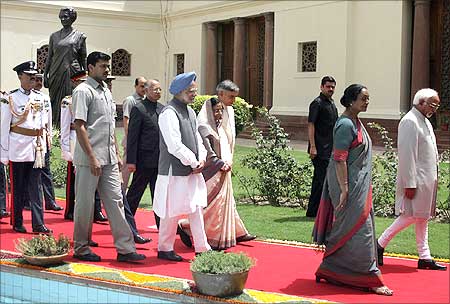
The finance minister introduces the budget in the Lok Sabha with a speech that gives the overall view of the Budget. The 'annual financial statement' is tabled in the Rajya Sabha when the finance minister finishes his speech in the Lok Sabha.
The Budget is discussed in two stages in Lok Sabha. First, there is the general discussion on the Budget as a whole. This lasts for about 4 to 5 days. Only the broad outlines of the Budget and the principles and policies underlying it are discussed at this stage.
The finance minister replies at the end of the general discussion. His reply is of a general nature; no specifics of the Budget are discussed. No motion is moved nor is voting required at this stage.
The house is then adjourned for a fixed period.
During this period, each ministry's expenditure proposals, known as demands for grants, are considered by the concerned standing committees.
These committees are required to make their reports to the House within specified period without asking for more time. These reports are persuasive in nature and cannot suggest anything of the nature of cut motions.
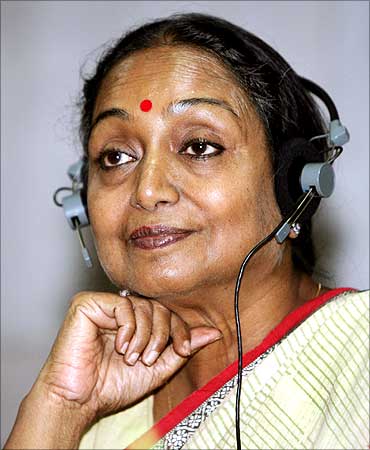
This is when the House reconvenes and the Lok Sabha then takes up for discussion each ministry's demand for grants. After the prescribed number of days for this discussion is over, the Speaker applies the 'guillotine,' and all outstanding demands for grants, whether discussed or not, are put to vote at once.
Only the Lok Sabha is entitled to vote. It also has the power to assent to refuse any demand or even to reduce the amount of grant sought by the government.
The Appropriation Bill is introduced in the Lok Sabha after it has passed all demands for grants relating to all ministries. This is to authorise the government to draw funds from the Consolidated Fund of India. Once this Bill is passed, it becomes the Appropriation Act and is certified as a Money Bill.
Next, the Finance Bill is introduced and it incorporates all taxation proposals. At this stage, amendments for tax proposal can be moved. After the passing of this Bill, it enters the statute as the Finance Act.
This, in a nutshell, is how the Budget is finally approved. The process takes about a month and comes into effect on April 1, the first day of the new financial year.
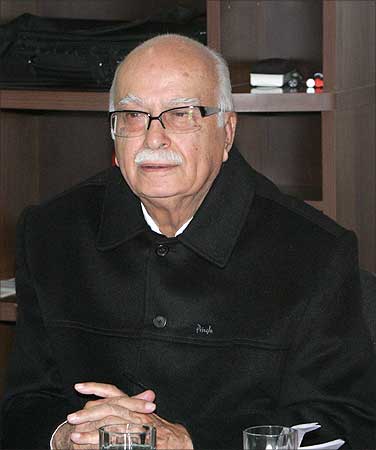
This time, though, the process will be slightly different mainly because of lack of time. As we mentioned earlier, the government needs to pass the Budget before July 31 in order to avoid a second vote-on-account.
It will try to curtail parliamentary deliberation on the Budget by bypassing the standing committees and passing the Budget directly in the Lok Sabha.
Parliamentary Affairs Minister Pawan Kumar Bansal has already met with Leader of Opposition Lal Krishna Advani to seek the BJP's approval for bypassing the Parliamentary standing committee. His plea was that the Lok Sabha will be able to discuss the Budget sufficiently before it is put to vote, hence the standing committees can be dispensed with as a one-time exception.
Mukherjee too is said to have been in touch with the BJP and the CPI (M).
Bansal and Commerce and Industries Minister Anand Sharma have been asked to liaise with the smaller parties to ensure the Budget moves smoothly through Parliament.
Advani, say reports, has signalled a positive response.
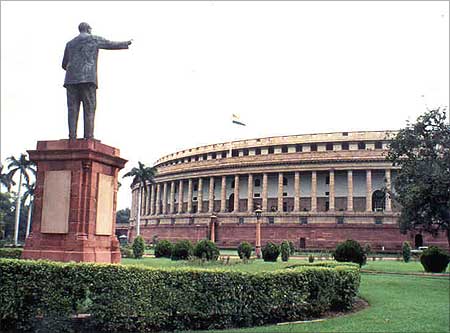
Although the UPA government enjoys the support of over 300 MPs in the 543-member House, as a matter of Parliamentary propriety, the ruling party needs the consent of at least the main Opposition party to break from any custom or tradition.
In 1999, the entire Opposition stood by the Atal Bihari Vajpayee government's attempt to bypass the standing committees and pass the full Budget directly because the government had collapsed and the Budget had to be passed.
If the Budget is not passed by July 31, the government will have to go in for the second vote-on-account to deal with the unavoidable day-to-day expenses of running the nation.